Instagram Addicted Your Teenager Because She's Worth $270 to Them
New unredacted files show Meta studies teen biology to promote addiction, chooses profits over mental health.
Hey. Sorry, I know I promised I wouldn’t be writing again before the end of the year. But I wanted to send out a quick newsletter to make sure I shed light on something that shouldn’t be ignored despite the company’s best efforts to be sure it is.
Late on the night before Thanksgiving, Facebook/Instagram (Meta) unsealed almost all of the redacted lines from the recent lawsuit in which 40+ states alleged Meta knowingly harmed teenage mental health by addicting them to their platforms for profit.
I have been banging the drum on this issue for years—that Facebook is actively, not passively, choosing profits over users’ well-being—often with people giving me the side-eye like I’m peddling some wacky conspiracy theory. Well, now we have it straight from Meta’s mouth: they knew they were harming teenagers, and they ignored this harm because of the immense profits.
Below are a handful of screenshots with highlights from the document. The highlights are new information we didn’t have before. All of this highlighting is courtesy of Jason Kint, the CEO of Digital Context Next. He wrote a Twitter thread with all of the screenshots here.
First, an IG spokesperson sees the issue:
Then, a Meta employee says: “Hey this is like tobacco companies saying their product is fine.”
Then we learn Meta did its own research and found that it led users down eating disorder rabbit holes, and “SSI admissions on Instagram is significantly associated with increased time spent.” Sheeeeeesh.
Next, we see Meta say, “Well, Instagram makes things better…but only if you look at it a certain way.”
Here we see Adam Mosseri, the head of Instagram, refusing to make hiding likes (Project Daisy) a default setting for teens because it would confirm what everyone knew to be true—that like counts hinder mental health. This is absolutely vile.
High like counts clearly affect teen girls’ mental health in a bad way, but Meta made the feature opt-in only once it realized that it decreased revenue by 1%. This is a CLEAR example of Facebook choosing profit over teen mental health.
Facebook data scientists recognized that social comparison is at the heart of Instagram and its business, and said, “Do we want this or not?”
Antigone Davis is the Global Head of Safety at Meta. She testified before a congressional committee that the company does not consider the lifetime value of its young users. Senator Amy Klobuchar reminded Ms. Davis that she was under oath while she was making this claim.
But, according to a 2018 internal Meta email, your 13-year-old is worth $270 to Meta. So, someone ask Ms. Davis about that.
Meta studies teen biology to learn how to addict your teen to its social media platforms.
Meta employees know they have abused the notifications function that is used to addict teens (and users of all ages).
Meta employees know that children under the age of 13 use their platforms, but they do everything they can, including AVOIDING BULLYING RESEARCH in order to maintain plausible deniability.
So, there’s that. Meta does not care about your children. They do not care about the mental health of teenagers. Do not believe anything they say about the steps they’re taking to improve or any of that nonsense.
In the war for the mental health of teenagers it is Parents v. The Best-Paid, Most Brilliant Computer and Behavioral Scientists in the World. And parents don’t stand a chance.
Now I’m going away, hopefully for a while.
-Chris


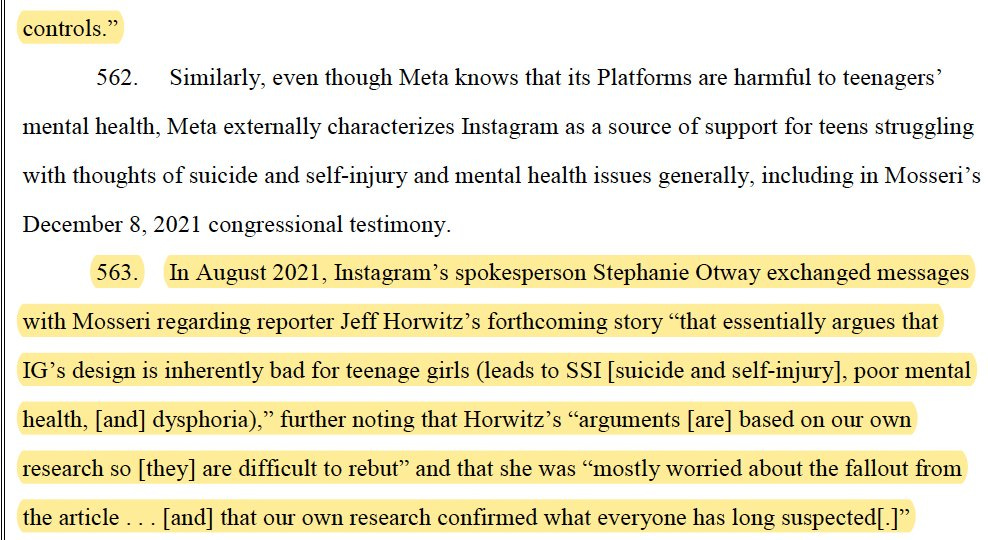
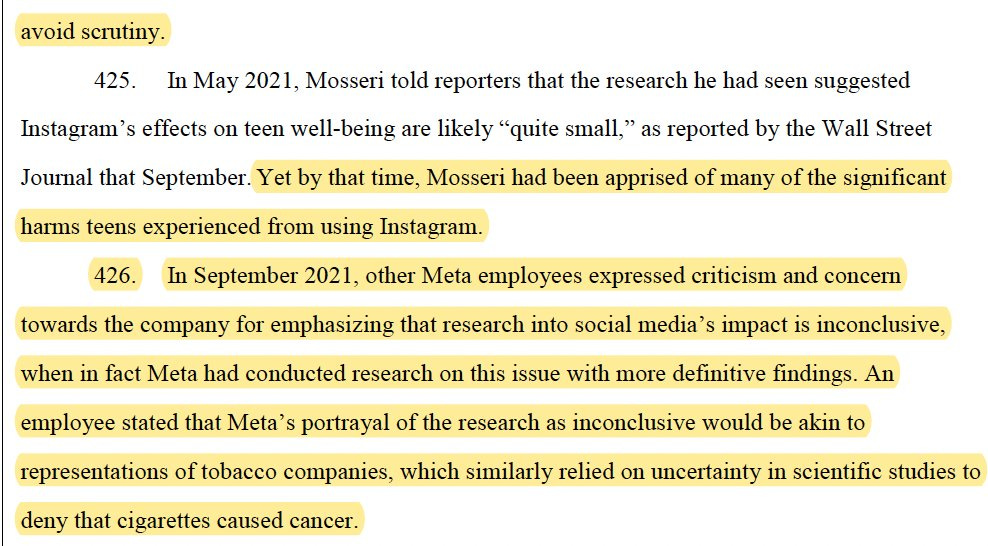





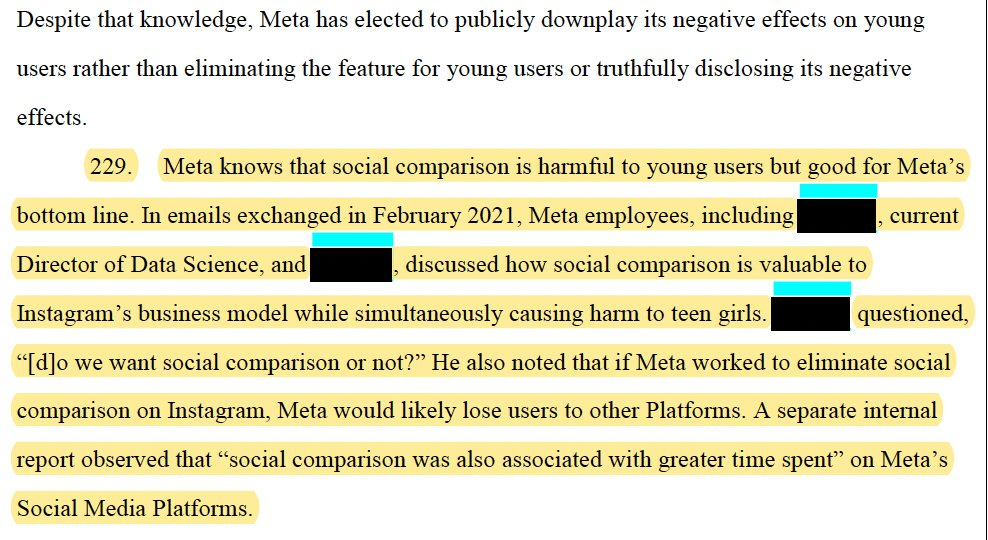

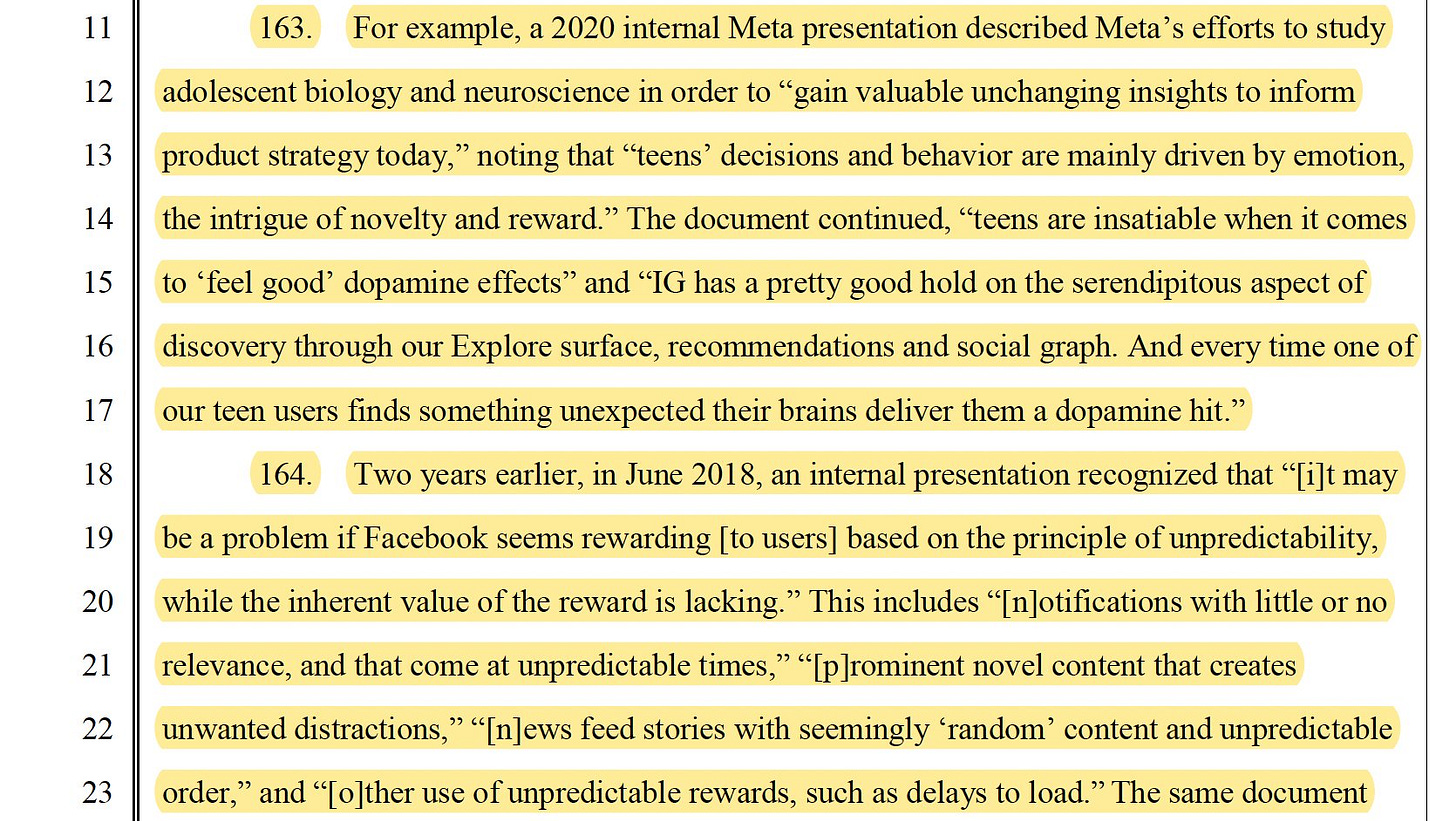
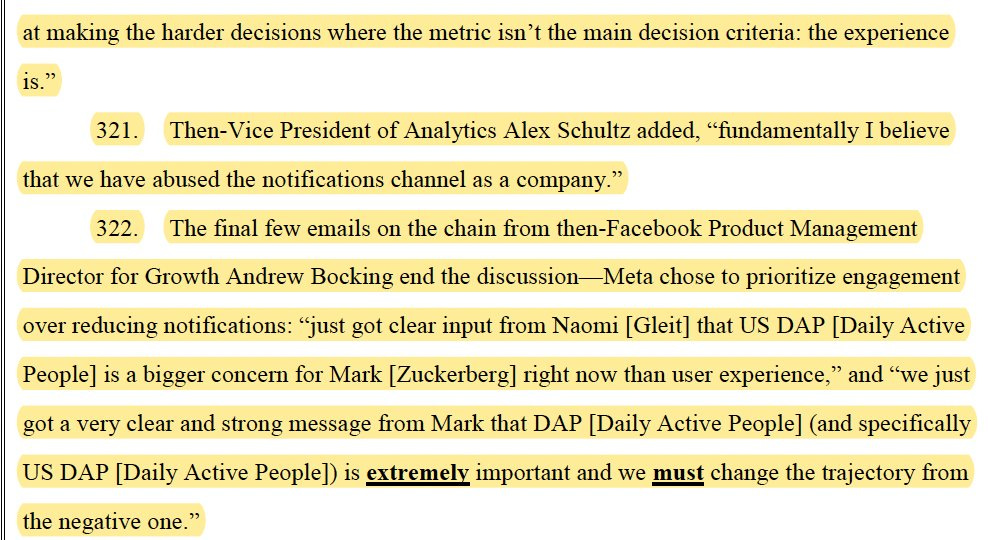
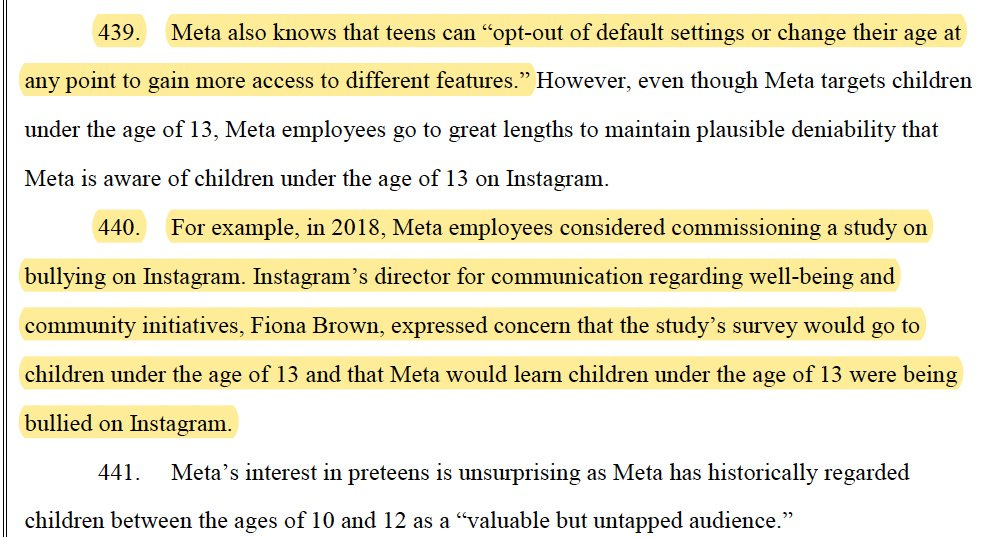
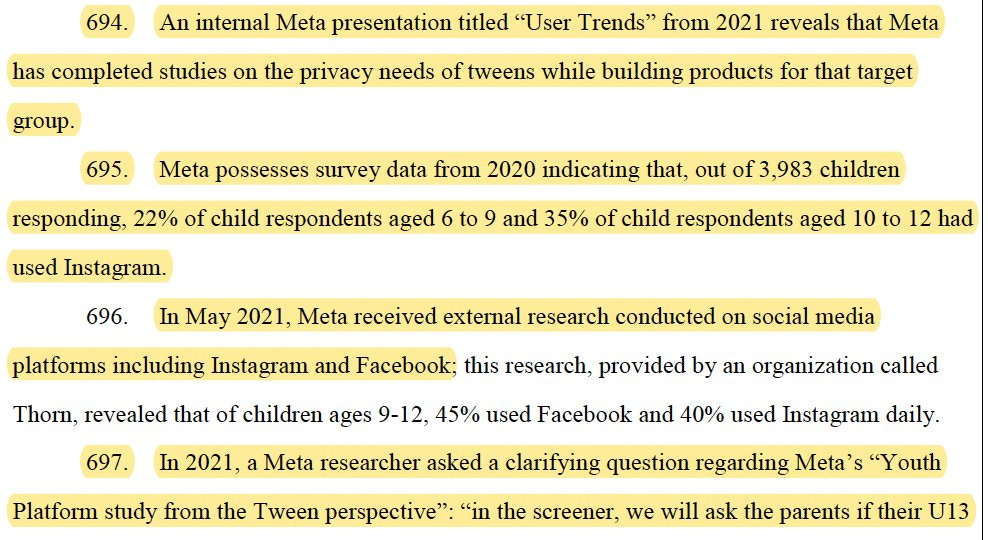
Good news is, many, many parents seem to be waking up to the dangers and getting smarter. We still have a ways to go. I'm in a large group on FB called Parenting in a Tech Age. At least weekly, a parent asks advice about allowing their teen daughter to have an IG account because they "don't want her to feel left out."